Five talking points from stage four of the Vuelta a España 2021
Jakobsen’s comeback is complete and the Rein came down - tense moments from the second sprint opportunity
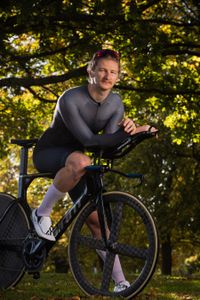
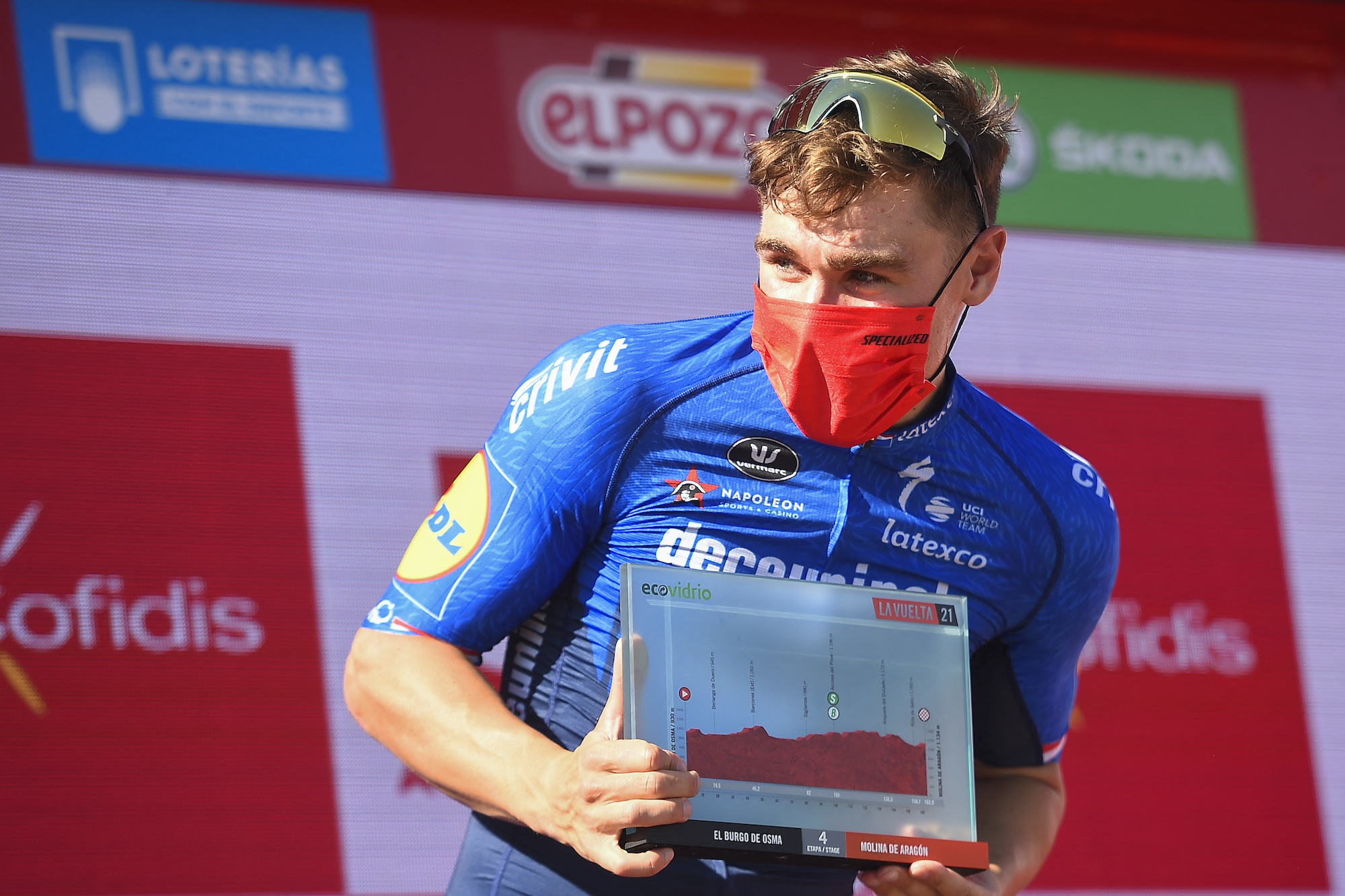
Fabio Jakobsen puts life-threatening crash behind him
It was almost exactly a year ago that Fabio Jakobsen awoke from a medically induced coma, having suffered life-threatening injuries in the Tour of Poland.
The Dutch sprinter has fought so hard to return to the top of the sport after a crash that could have ended his career or even his life.
But on stage four of the Vuelta a España 2021, Jakobsen picked up where his career began to take off, with a stage win in the Spanish Grand Tour.
In 2019, Jakobsen looked like he could be the next big name in sprinting, winning 10 races in a single season, including two Vuelta stages on his debut in the race, before the crash with Dylan Groenewegen in Poland changed the trajectory of his life beyond recognition in August 2020.
Now with his huge sprint victory in Spain, beating the veteran Arnaud Démare, Jakobsen’s comeback is complete.
It’s another fairytale win for Deceuninck - Quick-Step, whose biggest success have come from riders looking for redemption - first Mark Cavendish in the Tour de France and now Jakobsen in the Vuelta.
Jakobsen’s confidence in the sprints is the real shock however, as he seems to have lost none of his bravery in battling through the bunch to hit the line first.
The latest race content, interviews, features, reviews and expert buying guides, direct to your inbox!
Arnaud Démare fails to capitalise on strong lead-out
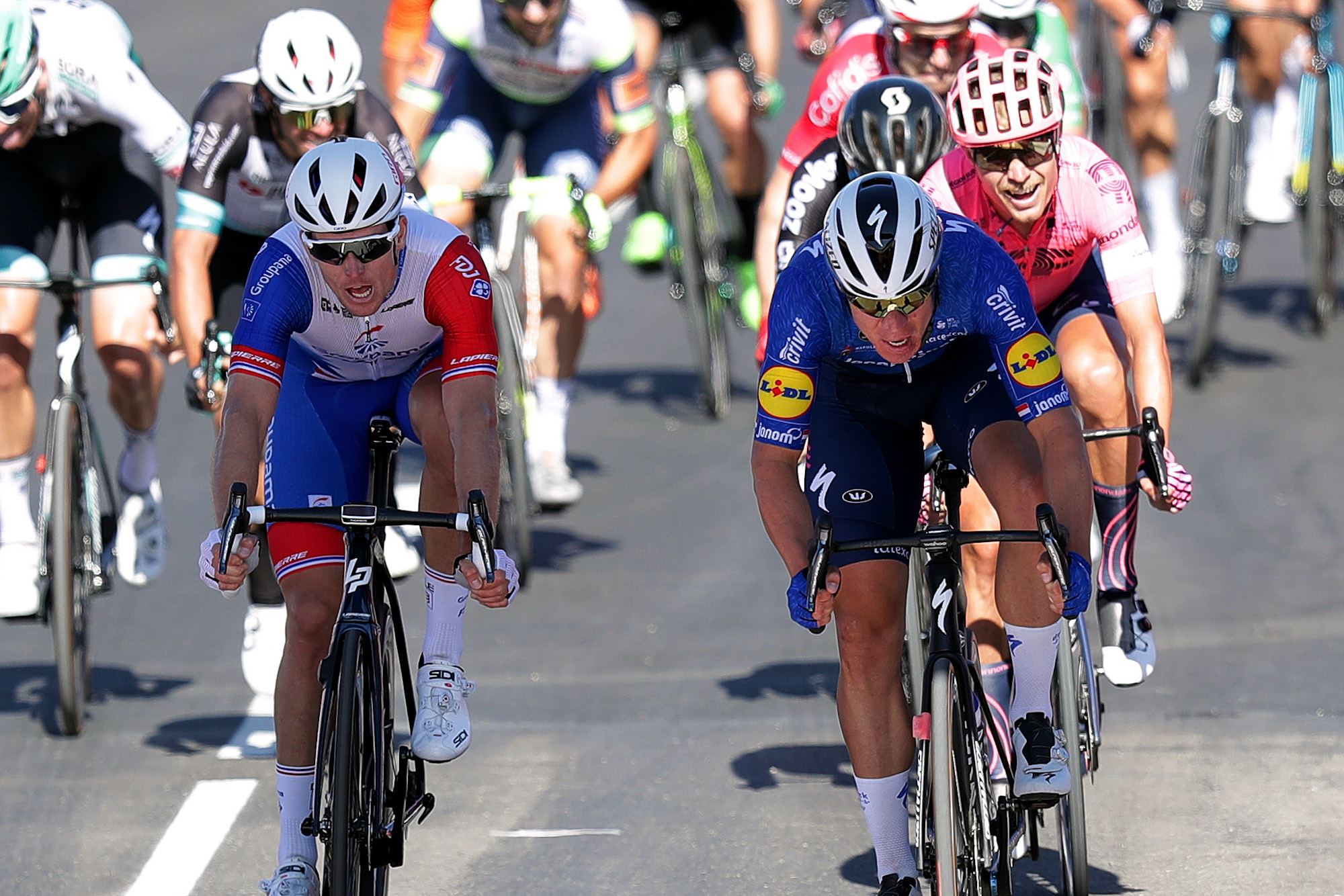
French sprinter Arnaud Démare’s search for form continues.
Last year the Groupama-FDJ rider was in unbelievable form, winning 14 races across the season, including four stage of the Giro d’Italia, but this year he has not returned to that dominant position.
While Démare has picked up plenty of wins in smaller races on home turf this year, he just hasn’t hit the level he needs in the biggest races.
Stage four of the Vuelta looked like it could be Démare’s moment, as his Groupama-FDJ squad put in a huge effort to lead him into the final turn right at the head of the race as the road ramped up to the line.
Démare was dropped off too early though and had to launch his sprint around 100m from the finish, allowing Jakobsen to get into position on his wheel and launch past to take the sprint.
It was a promising performance for the 29-year-old, but after being eliminated by the Tour de France time cut earlier this year, the pressure is on for him to deliver in this race.
The Rein came down in Spain
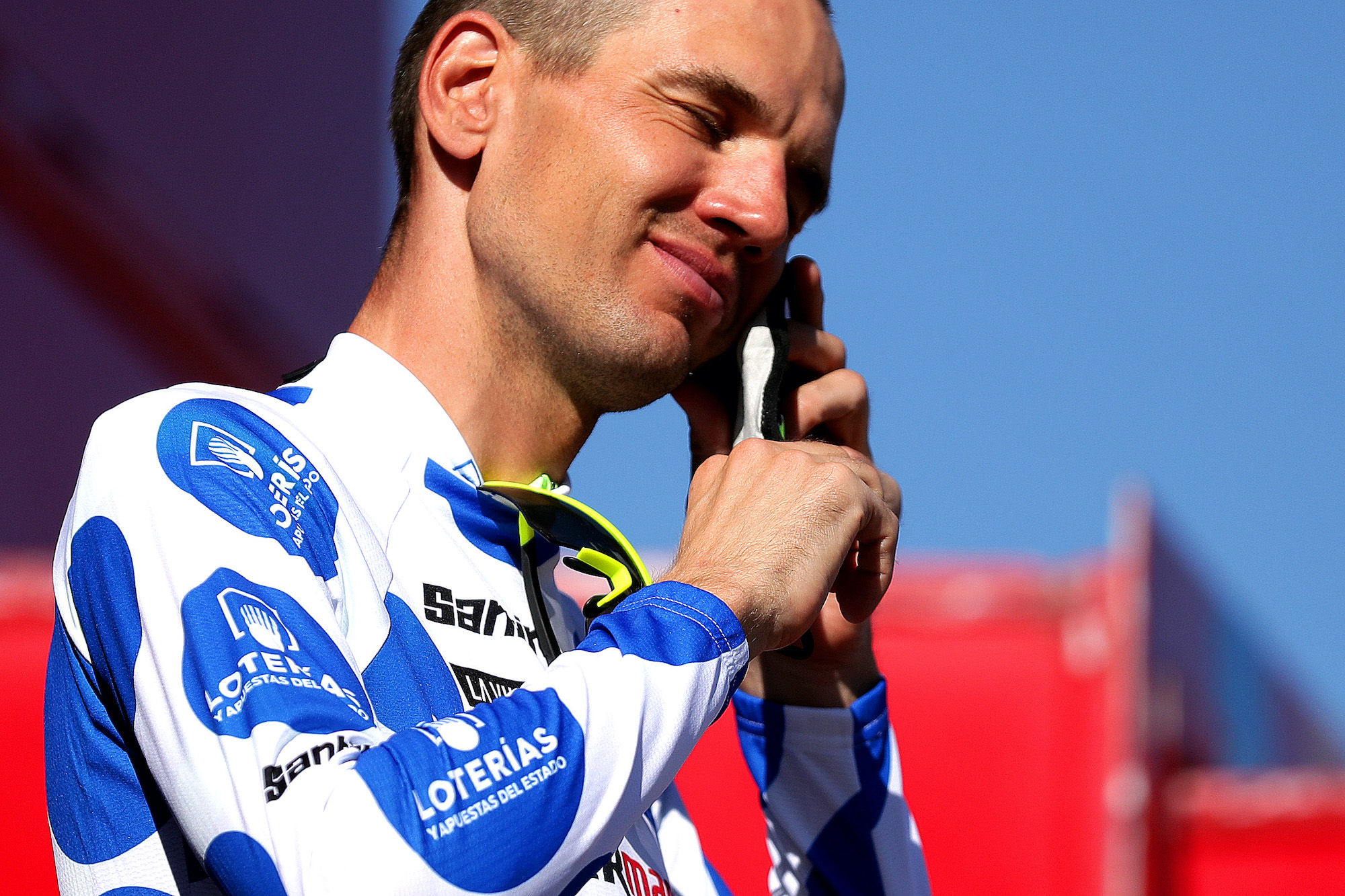
If you’ll forgive the awful pun (which has probably been repeated 10,000 times on cycling Twitter already), Rein Taaramäe’s frustrating crash inside the final 3km of stage four highlights the constant danger of Grand Tour racing.
The Estonian veteran took a dream victory on stage three, taking his second Vuelta stage 10 years after hiz first , and also moving into the race lead.
But the dream almost came tumbling down with him, as Taaramäe fell during a compression in the bunch heading into the final few kilometres.
Fortunately the Intermarché-Wanty-Gobert Matériaux rider was able to get back on his bike and ride to the line, as any time losses were neutralised thanks to the 3km incident rule, saving his race lead.
As the final Grand Tour of the year, the stakes are high in the Vuelta for riders hoping to take a big victory, so the road remains treacherous for those high up on the general classification.
Absence of the best sprinters makes for some unpredictable racing
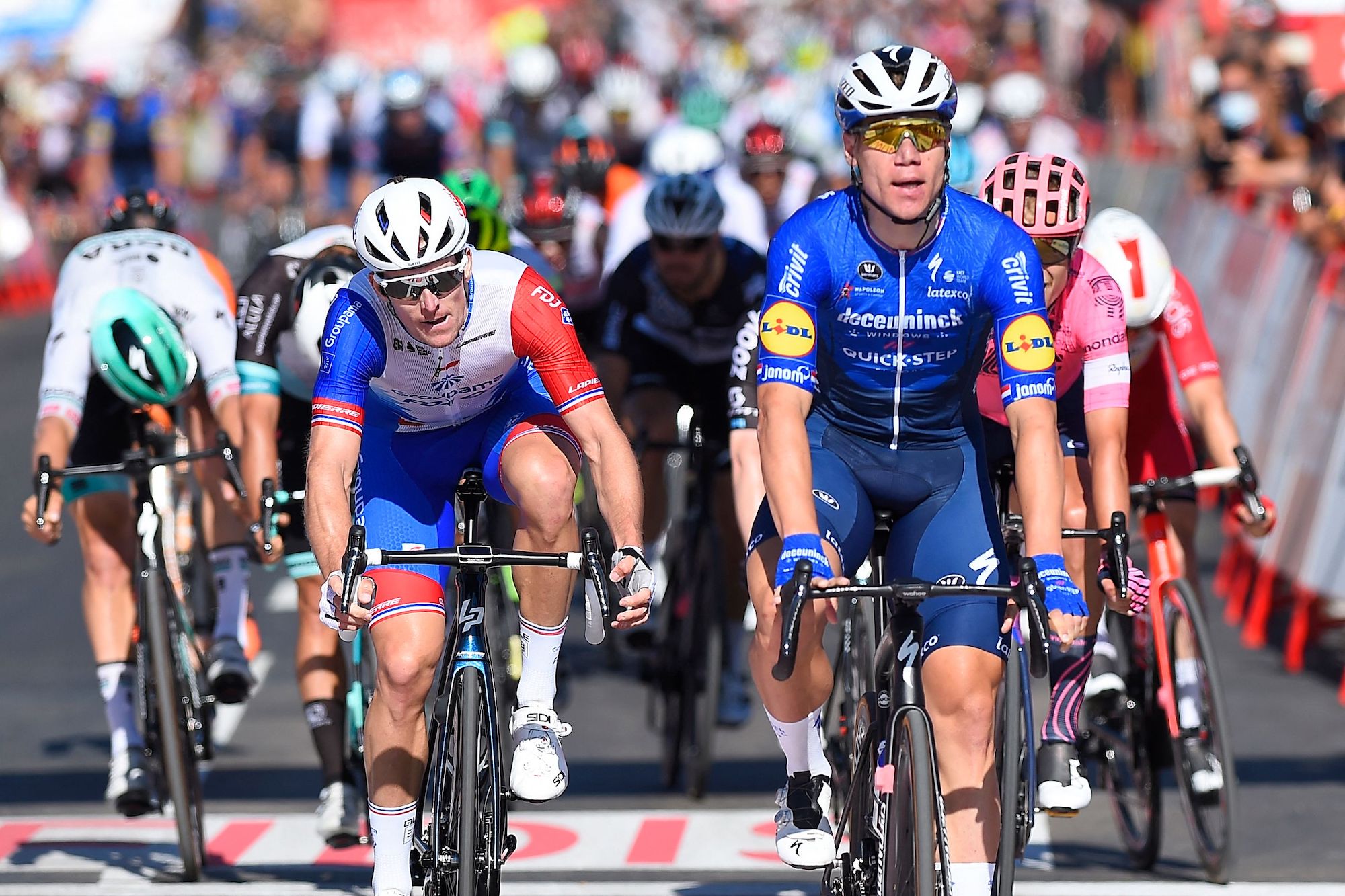
One of the most notable details of the sprints in the 2021 Vuelta a España is the absence of the current crop of top-tier sprinters.
While the Vuelta is traditionally not a race for the sprinters, this year’s edition actually has plenty of opportunities for the fast men to win the stage.
Last year’s race featured the likes of Sam Bennett and Pascal Ackermann, two of the fastest riders last year, but both are missing from this year’s race.
Instead this Vuelta is an opportunity for younger sprinters to prove themselves, as Jasper Philipsen (Alpecin-Fenix) did on stage two and now Jakobsen on stage three.
Philipsen was boxed in on stage four and had to settled for ninth place, while Alberto Dainese (Team DSM) took fourth, closing in on a Grand Tour win at the age of 23.
We also saw the veteran’s hit the front, with Démare second, Magnust Cort (EF Education-Nippo) in third, Michael Matthews (Team BikeExchange) in fifth, and Matteo Trentin (UAE Team Emirates) in eighth.
This all makes for some brilliantly unpredictable sprint finishes, with no one team or sprinter dominating the fast finishes.
A welcome quiet day for the GC contenders
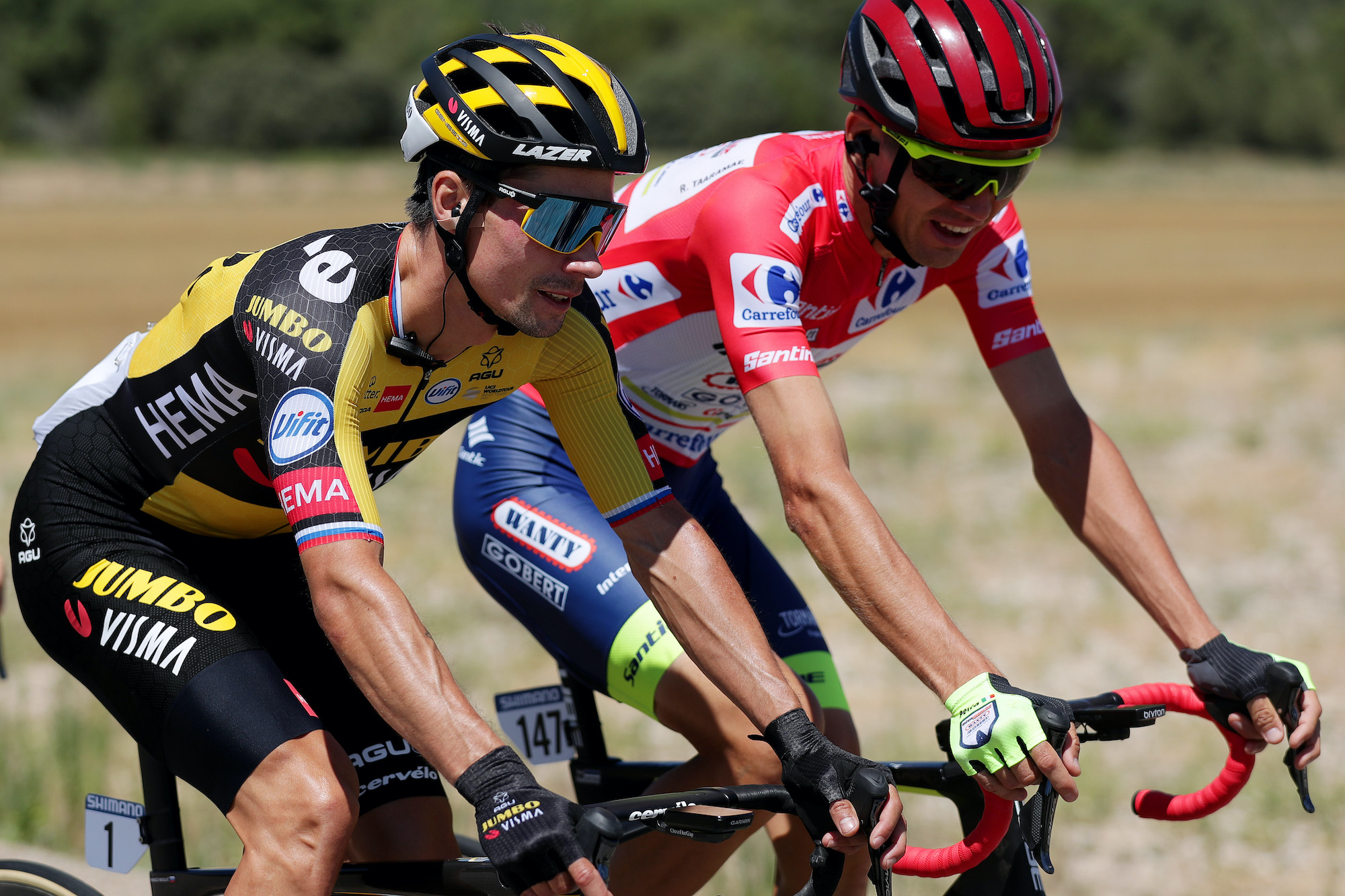
The sprint opportunities are often the most dangerous for the general classification contenders in a Grand Tour, as the long and often uneventful days in the bunch often cause inattention, and in turn disastrous consequences.
But stage four was a very calm day with no major crashes to upset the general classification, which after the chaos we’ve seen already in Grand Tours this year (particularly the opening week of the Tour de France), this will be a welcome result for both the riders and for the fans.
>>> Mark Cavendish: ‘The Tour de France is not a bike race, it’s a world sporting event’
We still have a well-poised GC race before the mountains start later this week, with another sprint stage on day five, followed by a punchy uphill finish on stage six, and then a huge mountain day on stage seven.
Alex Ballinger is editor of BikeBiz magazine, the leading publication for the UK cycle industry, and is the former digital news editor for CyclingWeekly.com. After gaining experience in local newsrooms, national newspapers and in digital journalism, Alex found his calling in cycling, first as a reporter, then as news editor responsible for Cycling Weekly's online news output, and now as the editor of BikeBiz. Since pro cycling first captured his heart during the 2010 Tour de France (specifically the Contador-Schleck battle) Alex covered three Tours de France, multiple editions of the Tour of Britain, and the World Championships, while both writing and video presenting for Cycling Weekly. He also specialises in fitness writing, often throwing himself into the deep end to help readers improve their own power numbers. Away from the desk, Alex can be found racing time trials, riding BMX and mountain bikes, or exploring off-road on his gravel bike. He’s also an avid gamer, and can usually be found buried in an eclectic selection of books.
